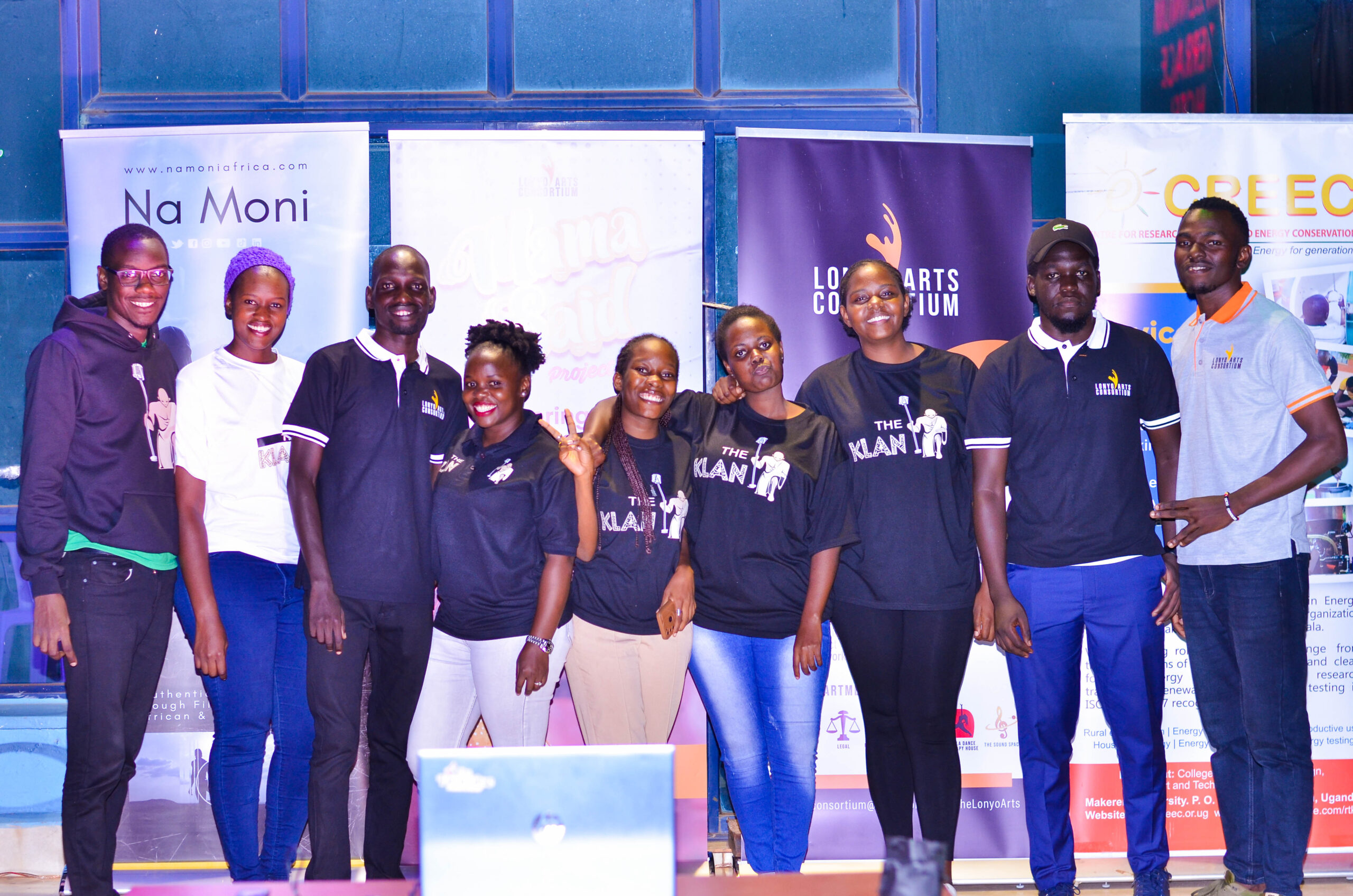Women, energy, and poetry

Is it possible to bring poets and engineers together? There is a lot of talk about creating engagement between arts and humanities and STEM (science, technology, engineering, and mathematics) but it often does not lead to constructive results. At the most there may be some paintings of test tubes on a bench, or a short story about melting glaciers. Nonetheless we thought we’d give it a try with a live performance poetry reading in Uganda.
As part of the long-standing collaboration between the Centre for Research in Energy and Energy Conservation (CREEC) in Uganda and the University of Leeds, Flavia Ajambo of CREEC and Jon Lovett of the School of Geography worked together with the poet Jordan Megolonyo of Lonyo Arts Consortium to create an evening of poetry themed around women and energy on the roof top of the Goethe Institute in Kampala on 23 September. To make it globally accessible the event was streamed live on Zoom by Wei Zhou of the Leeds Centre for Endangered Languages, Cultures and Ecosystems.
Poetry is a universal medium for reaching out to all members of the community. In an interview with The Friday Poem magazine, Jordan describes his poetry: “I strive to use my gift / skill of poetry to change mindsets, to educate, to inform, to encourage, to build and to ultimately impact my society and communities as far as my poetry will reach.
“As such, I hope to work with poets and entities of different kinds that intend to better lives around the world. I believe poetry has the power to impact lives, for such is the power that words hold. One poem at a time. One life at a time.”
The event caught media attention and was reported on the Uganda national television station UBC.
Afterwards Flavia said: “The women in energy poetry event was truly transformational! We have taken it upon ourselves to share the message of sustainable forms of energy on all platforms.
“And indeed, it’s always interesting infusing some of the issues we find quite challenging like energy poverty into the arts and entertainment. So yes, the poetry featured stories of some of the challenges women experience when it comes to energy.”
CREEC also provided a special dimension to the evening. Smoke from cooking fires is called the ‘killer in the kitchen’ because of the damage to health caused by smoke particles, a problem that mostly affects women and children who are traditionally most involved in food preparation. One of CREEC’s projects encourages people to prepare food using electricity and avoid woodsmoke, so Flavia and her team cooked food for the event using recipes from their recently published Uganda eCooking recipe book.
Flavia added: “We also created an experience for the audience by carrying out a cooking demonstration using electric pressure cookers where we made rice, matooke and chicken in under two hours. It was truly remarkable!”
Flavia Ajambo of CREEC explains more about the work that CREEC does regarding women and energy in this short video:
This blog was written by Professor Jon Lovett, Chair in Global Challenges at the University of Leeds.
The main image is courtesy of Lonyo Arts Consortium.
